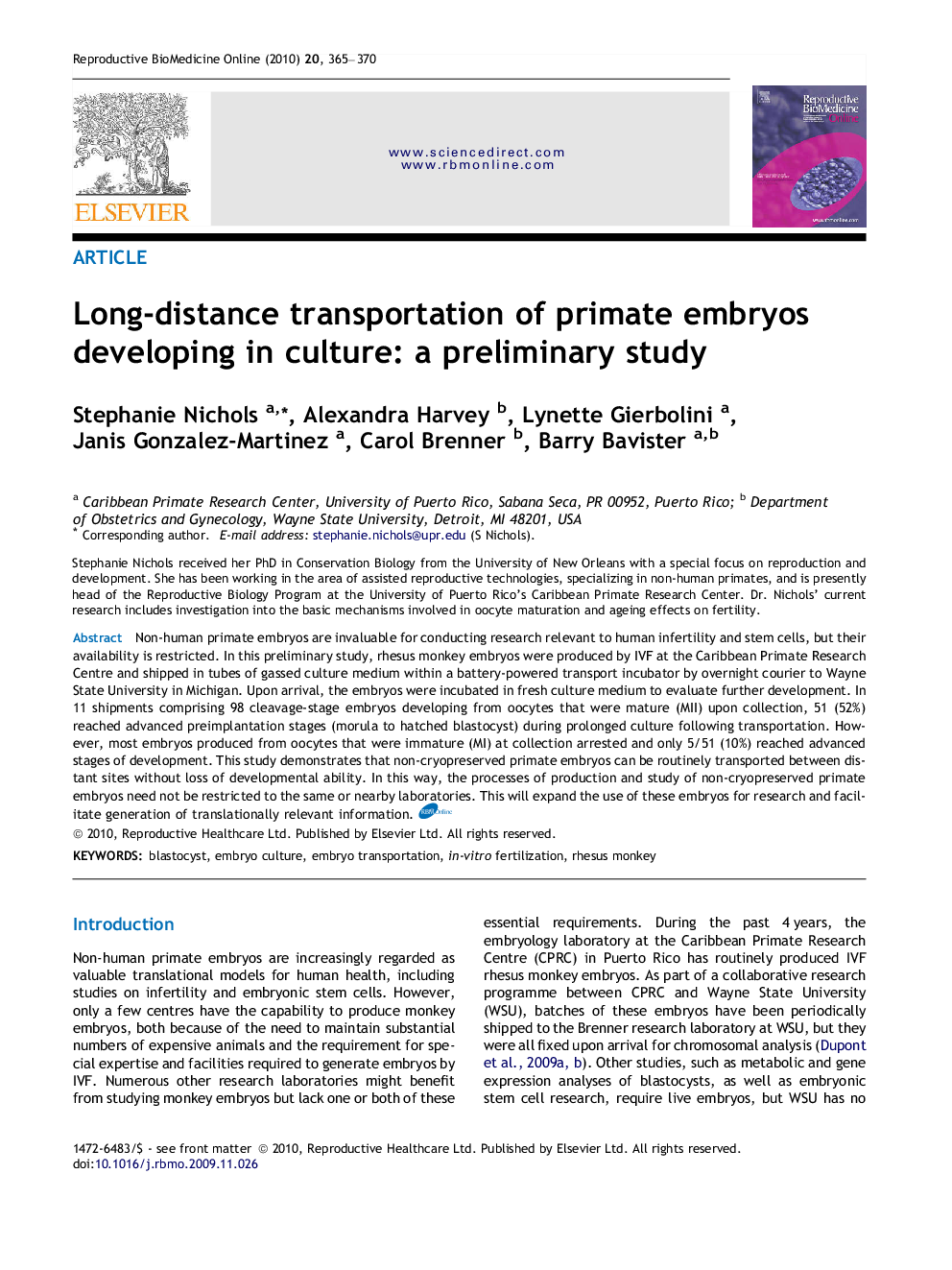| Article ID | Journal | Published Year | Pages | File Type |
|---|---|---|---|---|
| 3971539 | Reproductive BioMedicine Online | 2010 | 6 Pages |
Non-human primate embryos are invaluable for conducting research relevant to human infertility and stem cells, but their availability is restricted. In this preliminary study, rhesus monkey embryos were produced by IVF at the Caribbean Primate Research Centre and shipped in tubes of gassed culture medium within a battery-powered transport incubator by overnight courier to Wayne State University in Michigan. Upon arrival, the embryos were incubated in fresh culture medium to evaluate further development. In 11 shipments comprising 98 cleavage-stage embryos developing from oocytes that were mature (MII) upon collection, 51 (52%) reached advanced preimplantation stages (morula to hatched blastocyst) during prolonged culture following transportation. However, most embryos produced from oocytes that were immature (MI) at collection arrested and only 5/51 (10%) reached advanced stages of development. This study demonstrates that non-cryopreserved primate embryos can be routinely transported between distant sites without loss of developmental ability. In this way, the processes of production and study of non-cryopreserved primate embryos need not be restricted to the same or nearby laboratories. This will expand the use of these embryos for research and facilitate generation of translationally relevant information.
